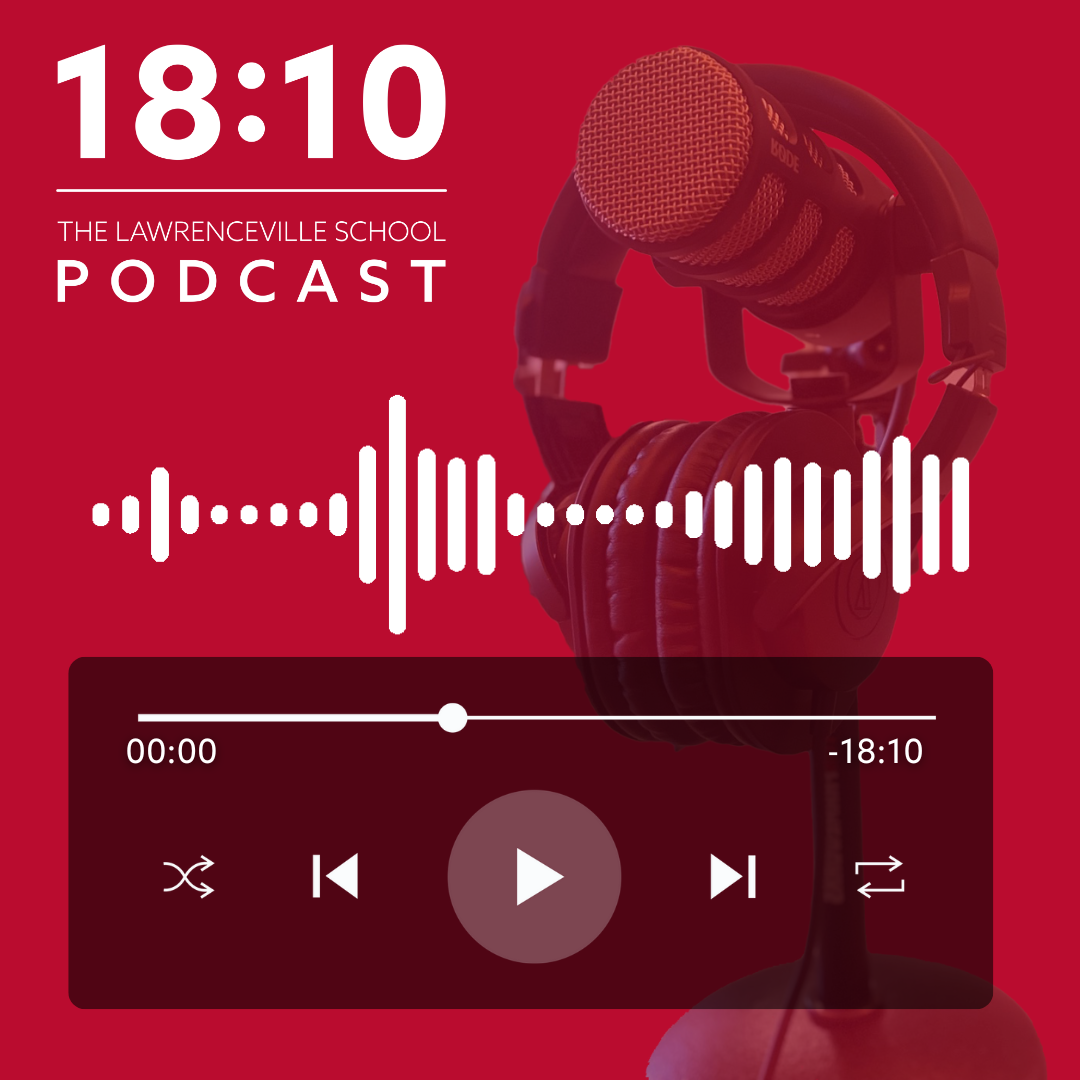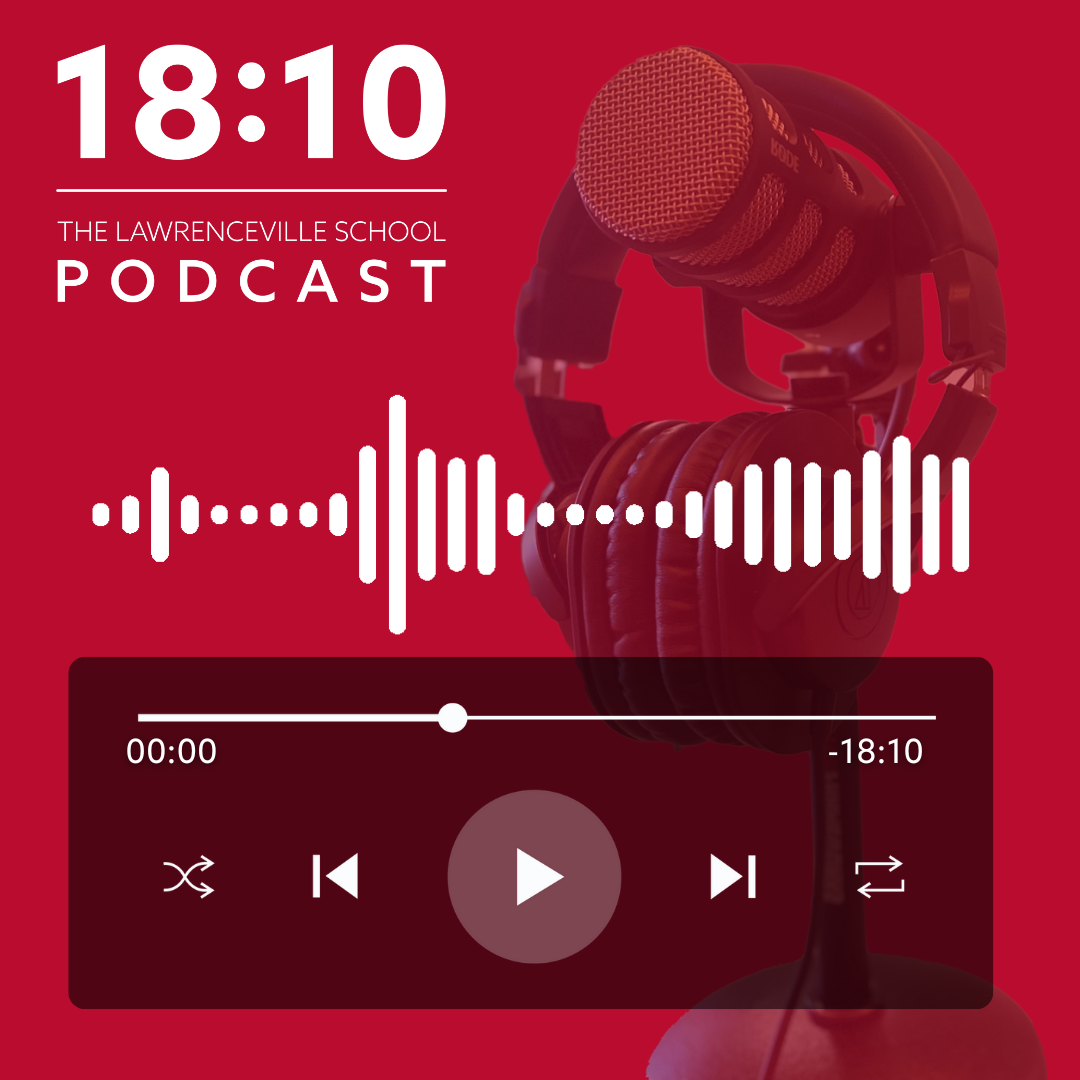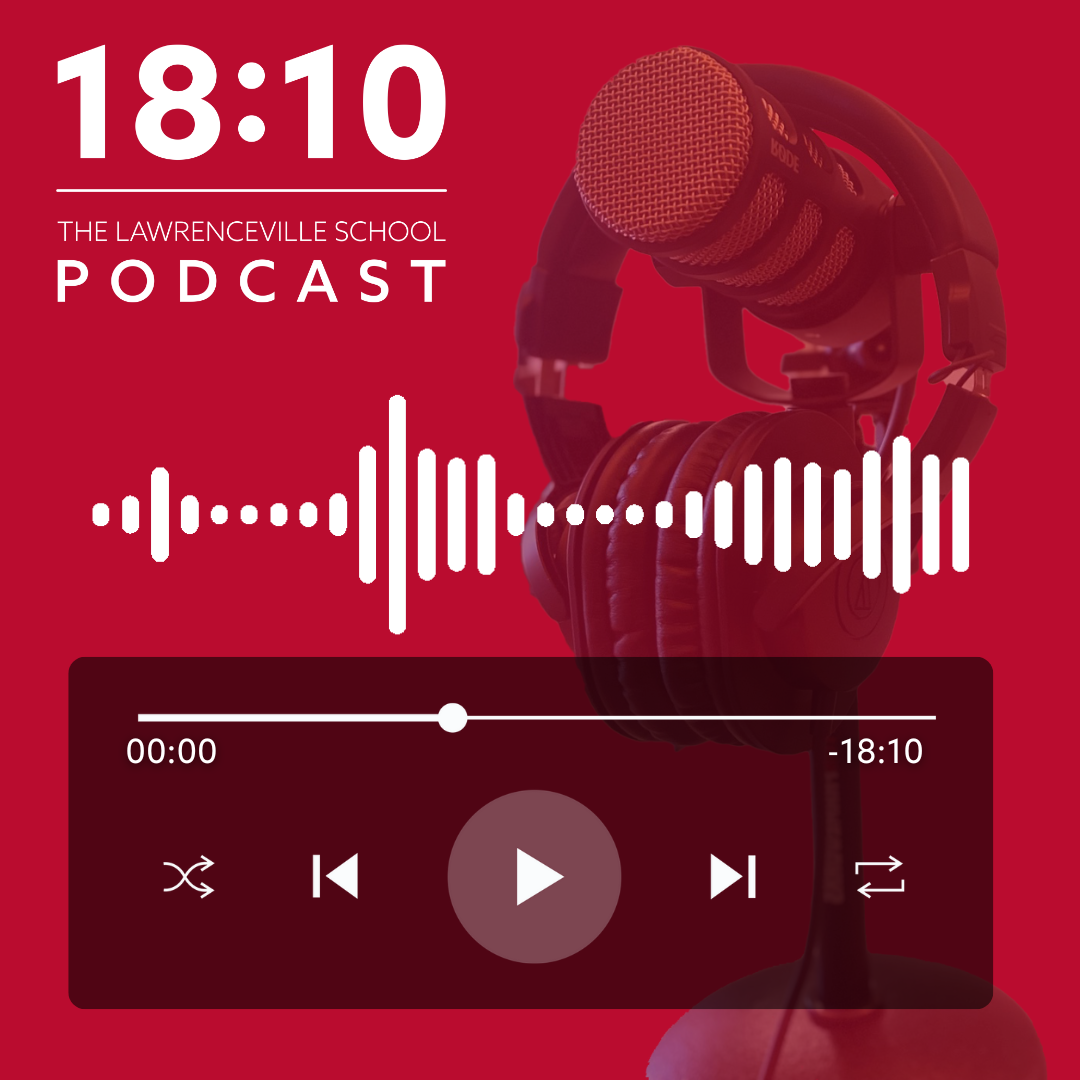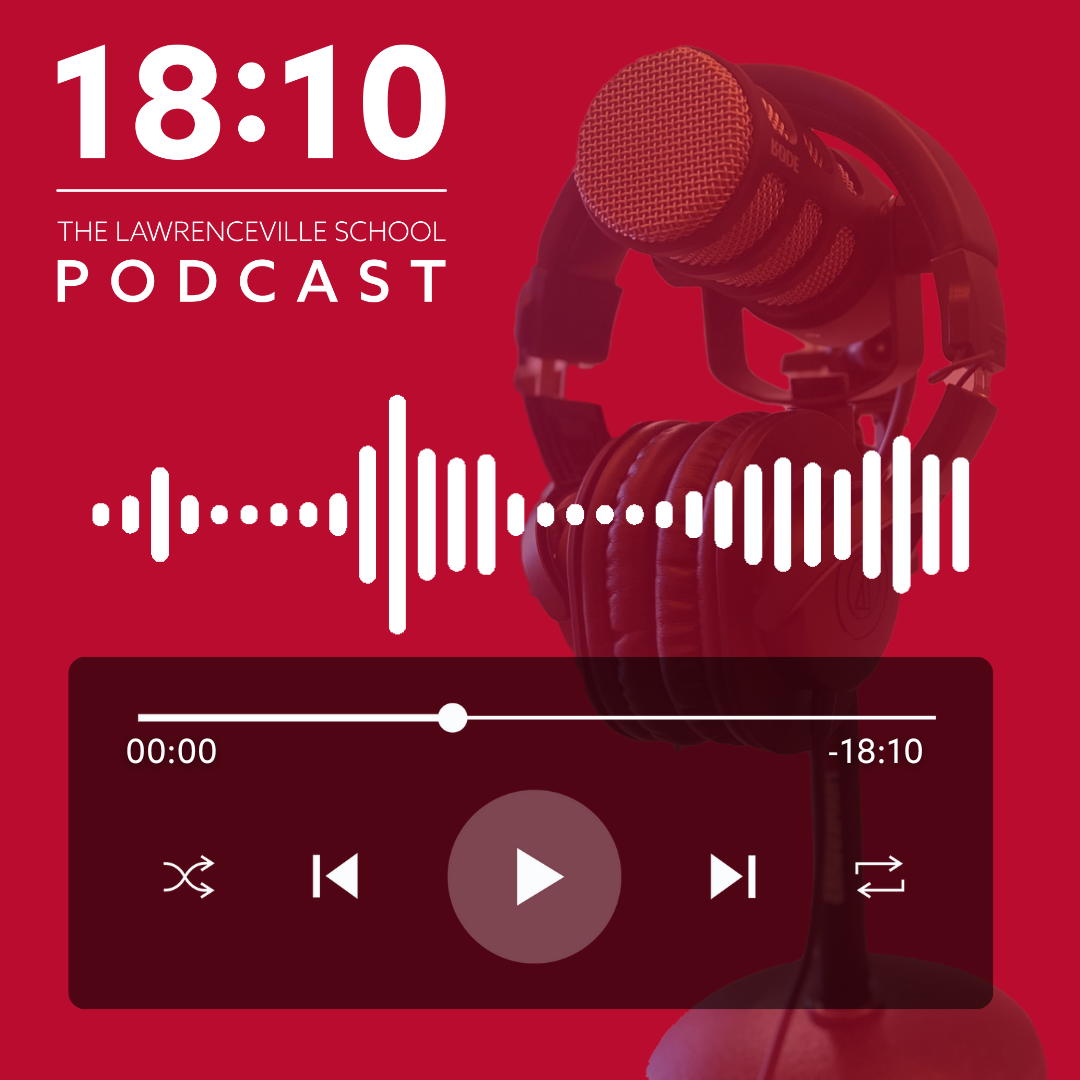Episode Transcript
[00:00:02] Speaker A: Welcome to 1810, a podcast produced by the Lawrenceville School. In 18 minutes and 10 seconds, we explore the future of education with insights from bright minded individuals, inspiring new ways of thinking.
Are you ready to be a lighthouse? In today's episode, we'll explore a modern metaphor that unlocks enduring truths and adaptable strategies for a balanced approach to raising children and teens.
I'm Dr. Chris Rangillian, your host for today. I'm a pediatrician who specializes in adolescent medicine and sports medicine and I have the great privilege of serving as Lawrenceville's medical director. I get to take care of remarkable young people right here in the same place where they live and learn. My guest today is Dr. Ken Ginsberg. Ken has been a teacher, advisor and friend to me for nearly 20 years. Literally from my first days as a medical student.
It's safe to say that Ken has influenced my thinking about fostering the development of young people more than any other individual on the planet. Dr. Ginsberg is a professor of Pediatrics at Children's Hospital of Philadelphia and the Perelman School of Medicine at the University of Pennsylvania. He's the founding director for the center for Parent and Teen Communication.
His research over the last 35 years has focused on youth development and the powerful positive role that parents and youth serving professionals can play in raising a new generation. He is the author of award winning parenting books and his most recent works include Congrats, you're having a strengthen your family and raise a good person.
And his newest book is Lighthouse Raising your child with loving guidance for a lifelong bond. Ken is joining me for our show today remotely. Ken, welcome to the show.
[00:01:44] Speaker B: Thanks so much, Chris. It is more than an honor to be doing this show. It's a joy because you remain one of my very favorite students or humans I've interacted with my entire life.
So what a joy.
[00:02:01] Speaker A: It's always a pleasure to have a conversation with you, Ken. I want to begin today's episode by asking you to introduce our listeners to the concept of lighthouse parenting. You begin your book with a statement, or I guess I might call it a meditation, and I'm wondering if you might walk us through that.
[00:02:18] Speaker B: Absolutely. Lighthouse parenting is about a choice, right? I choose to be a lighthouse parent, a stable force on the shoreline from which my child can measure themselves against.
I'll send my signals in a way they'll choose to trust. I'll look down at the rocks to be sure they don't crash against them. I'll look into the waves and trust they'll learn to ride them. But I am committed to preparing them to do so.
And it's this last line that actually means the most to me.
I'll remain a source of light they can seek whenever they need a safe and secure return.
I loved that you called it a meditation. I've actually been looking for the right words to describe it. And before today, I've been calling it a poem, even though it's not poetry. From this day forward, I'm going to be calling it a meditation because it is a deep, inward commitment to a style of parenting. And if I may, I want to, like, reassure your listeners that this is not a new parenting style. In fact, it's almost the opposite.
What we've been going through in the last couple of decades is a pendulum swinging from one extreme to another using all of these parenting styles that are named after farm implements or animals, things. Things designed to get lots of clicks, lots of attention, but without roots, they're more a reaction.
And lighthouse parenting is a metaphor that was created to help people understand what we know works. We have literally six decades of research on the importance of balance in parenting. When we balance the intensity of our love and our children, knowing that we are responding to them, flexible to meet their needs because we love and that we set rules and boundaries because we love, children have the best emotional, behavioral, meaning, the choices they make, academic outcomes, and again, what's most important to me, they also have the strongest families. Right. The secret is in the subtitle loving guidance for an enduring bond. So this is something we have known through research. But the other point is it's also common sense. You could ask your great grandma what kids needed, and they would have said, you know, what? They need to know they're loved and they are watching out for them, and you need to set rules to keep them safe. We also have to let them stretch into new territory. That's all this is.
[00:05:04] Speaker A: Thanks, Ken. And I really. I just want to underscore something you've said here about the balancing act. Right. It's a balance between love, warmth, and setting healthy boundaries to protect kids.
And I just kind of want to highlight that and give you an opportunity to elaborate further on kind of what that balance means to you and kind of what the foundational elements of that are.
[00:05:31] Speaker B: So this is about preparing for a lifelong relationship.
It's about parenting in childhood and adolescence so that adolescence goes smoothly and that our adolescents choose to include us in their lives not only for this few years, but for decades to come. The secret crests is, does your child feel controlled or do they see you as someone who supports their growing independence? And when they see you as an adolescent and they feel like those boundaries are rules, don't come from a place of love, don't come from a place of caring, but come from a place of control, they will push you away. Because adolescents are designed to to learn how to stand on their own foot.
They need to figure out how to stretch their wings. And when we guide them, how to do so safely, they embrace our input. And you want a guide in your life forever.
When you're 60 and your mom is 90, you want her in your life. But if someone has controlled you, you need to push them away or you're never going to learn to stand on your own. Right. So it's this beautiful balancing act. And what my latest book is about is about how you do it. What do you say? What do you not say? What do you do? Right. Because the science tells us the balance is what matters. But we have to figure out how to achieve that balance.
[00:07:12] Speaker A: And Ken in the lighthouse metaphor and what I've noticed from the way you've structured the book, it seems to me that there are some key themes or areas of thinking that you've used to anchor that discussion. Would you be willing to walk us through what some of those foundational themes are? Yeah.
[00:07:29] Speaker B: So let's start with this concept of being a stable force on the shoreline. Because if you read almost any book on parenting, you watch any Instagram post, you watch anything, the last line is always take care of yourself too.
And I do the opposite. I start there. We parents care so much about getting it right that we're actually in some ways messing up.
We're messing up because we're forgetting about ourselves as we put our kids front and center. And we're messing up because we're taking the precious few moments we have with our children and, and thinking about high yield time instead of enjoying one another. So let's talk about being a stable force on the shoreline.
It is about taking care of yourself, getting the ground secure under your own footing. That's what makes you a role model. Let's go to the next concept from which my child can measure themselves against. Kids want to know how to be adults. Adults who thrive, adults who contribute, adults who are have healthy relationships. They're learning from us and they're looking back. And if we seem insecure and we're not taking care of ourselves, then we're not being the role models they want to be. More importantly for me as an adolescent, Doc, speaking on behalf of people who care about behavior, safety and health.
I want parents to know what is going on in their children's lives.
I want them not to be focusing just on academics or performance or trophies or all of those things about doing.
I want them to be available to show up when their kid needs them the most. And you never know when that moment's going to be. But one of the great truths of adolescents is that they care so, so deeply about our parent, their parents.
And if they are worried about us, they spare us. And when they spare us, we don't know what's going on in their life because they don't want to upset us. And when we are that stable force, people who have bandwidth because we've created and modeled how to create bandwidth, kids come to us when they need us the most. And that's why I begin with a stable force on the shoreline.
[00:09:55] Speaker A: So, Ken, what you're saying is that centering self care for adults is actually not a selfish act. In some ways, it is the most generous act that adults can do because it enables them to be stable for their children.
It models what it means to be an adult who knows how to take care of themselves, which we want our kids to be able to do someday when they're 35 or 45. And it also models for our kids or lets them know that we're ready to hear from them in their times of greatest need because we know how to handle the information that they present to us at any point in their lives. Did I understand that right?
[00:10:34] Speaker B: You got it right, Dr. Chris. Every single point. And I'd like to expand, if we may, on this concept of being available when our children need us the most. So there are two halves that we have to do. The first half was to show them we're okay, that we have bandwidth and that we can make room on our plate. So we have to make sure that when we're talking about self care, we're not really talking about bubble baths. Though I'm very pro bubble bath. Right. But what we're really talking about is I can talk to another human being when I am stressed. I will get support.
Right?
I take care of my body. I'm getting enough sleep, I'm eating well, I'm exercising. That's what I mean. But I'd love to give the second point, which is what makes us available to our kids, and it's that we do not judge.
Right. And don't get me wrong, you're allowed to judge a behavior, to not like a behavior, but your child should never ever live in fear of the possibility of losing you.
And I'd like to talk about a couple of mistakes that people make.
Too many parents try to be their child's friend, believing, because many of us didn't have parents, we could easily talk to believing that in being friendly or even explicitly stating, think of me as your friend, that their children will come to us more.
That is simply not true. Remember what's happening during adolescence. Every adolescent in the universe has told every adult, I wish you were more like my friends. They say that, but they live in constant fear of losing their friends. Because adolescence is a time where you're trying on a lot of different hats. And if you're trying on a hat that your friends don't like, you lose them. We are better than that. As parents. We are this stable force that offers unconditional, unwavering love. Hence the light, unwavering love for when you need me the most, when you need to return at any moment. And why do we love?
We love so that children know they're worthy of being loved. And when we love without condition, and we are so much better by saying, I'm not going anywhere.
But it's not just how we behave with our children, it's how we walk through the universe.
If we, you know, right now the world is so divisive and it's so easy to begin disagreeing with people and insulting them or implying that they're the enemy almost your children are looking at you. And when they're looking at you and seeing that you are judging anybody, the neighbor, someone who disagrees with you politically, they're fearing being in that position with you. When you have a loving stance towards everyone, when you have intellectual humility towards everyone, your child will come to you because they know they can't lose you.
[00:13:40] Speaker A: Ken, thanks for that. And I think in bringing up the topic of being nonjudgmental, you kind of hinted at this, that it can feel like a loaded or even an impossible idea to achieve.
One of the frameworks that you've taught me over the years is to think about this a little bit through the lens of the difference between love, like and approve. And I'm wondering if we can kind of walk through that for a moment because it helps me to think about what it means to be non judgmental. So love, like and approve. What are those different scales and what do they mean to you today?
[00:14:16] Speaker B: So the dangerous word is like, not love, because like is full of judgment. It brings my past, it brings what I approve of, what I Don't approve of possibly my biases. And that is the dangerous word. Love is seeing someone as they really are, right, as they deserve to be seen based on all of their strengths, based on their character, based on the knowledge of who they are as human beings, not based on a behavior in the moment, because the behavior in the moment is just what they're displaying, maybe in reaction to pain or a circumstance. And the reason that parents matter so much, the reason we are the lighthouse, is because we know who our children really are. We've known it from the time they were two or three years old. All that is good and right, the things that make you want to point, pull your hair out, but you choose to love them. And when the person who knows you the best, all that is good and right, and the stuff that kind of makes you a pain in the butt chooses to love you, the amount of protection is unbelievable.
So you gotta love every moment of your life, even when you don't like in the moment or don't approve. You know, you're allowed to not like the way your child is talking to you as long as you frame all of your reactions in the spirit of love. Because I care about you. I don't approve of this behavior because I love you so much. My job is to protect you. And what you're doing now is blank because I know that you have always been a generous human being who cares about fairness. This is not consistent with who I know you to be. And I need you to draw from who you really are. This is the way we talk to human beings. And, Chris, you and I, you know, have worked side by side with some of the most challenged youth in the world. And we can always guide them to do better. But the way we do that is by seeing them first in all of their goodness and all of their rightness.
You don't approve of the behavior, but your love is without condition.
[00:16:40] Speaker A: Yeah, I think that's an area where the lighthouse metaphor is really helpful for me. And I really don't want to manipulate your metaphor too much, but this is how it's helpful to me. So I'm just going to kind of spitball a little bit, and I'd love to kind of hear what you think about this idea. You know, in a sense, the light of the lighthouse, its consistency, the brightness with which it shines, I think that's really reflective of the love that parents or a caring adult might have for a young person. That's the beacon. And there are things that we respond to and react to because it's important for us to exercise some judgment in showing our approval or disapproval for things that are unsafe or immoral. And this is where I think the lighthouse role is to help point out the limits of a safe harbor, where it's safe to sail, to help point out the rocks that are out there or the choppy waves so that they can be seen. And I think that's kind of the role of judgment or approval. But that that deeper connection and stability and what it means for our enduring bond to young people and our commitment to being there for them even when the seas get rough, that's love does that. Am I getting to the idea?
[00:17:50] Speaker B: I agree entirely with every point that you made.
[00:17:55] Speaker A: That's 1810 for today. Inspiring ideas from Lawrenceville to you. Join me in the next episode where Dr. Ken Ginsberg and I pick up our discussion of lighthouse parenting and explore its applications in education.



